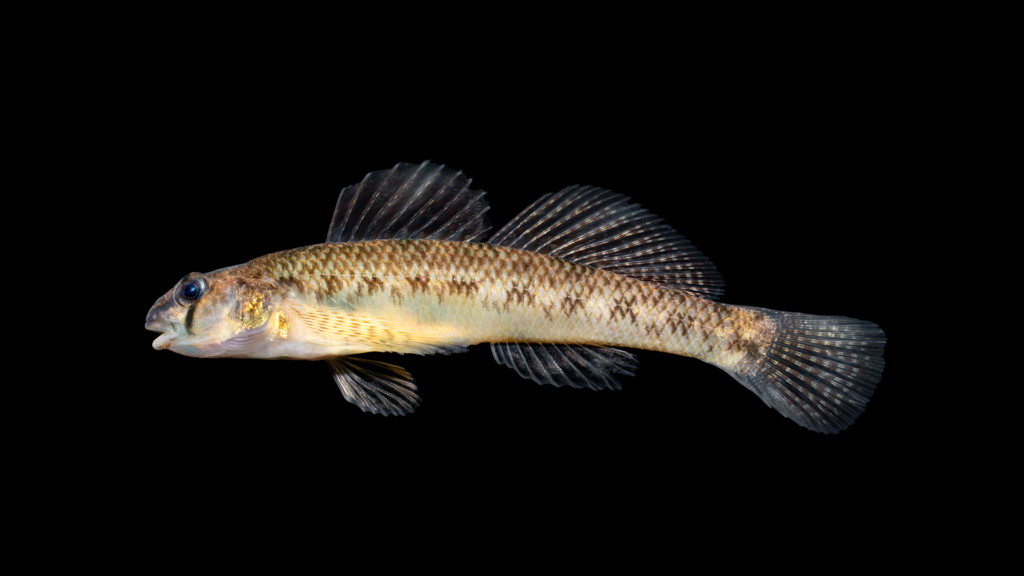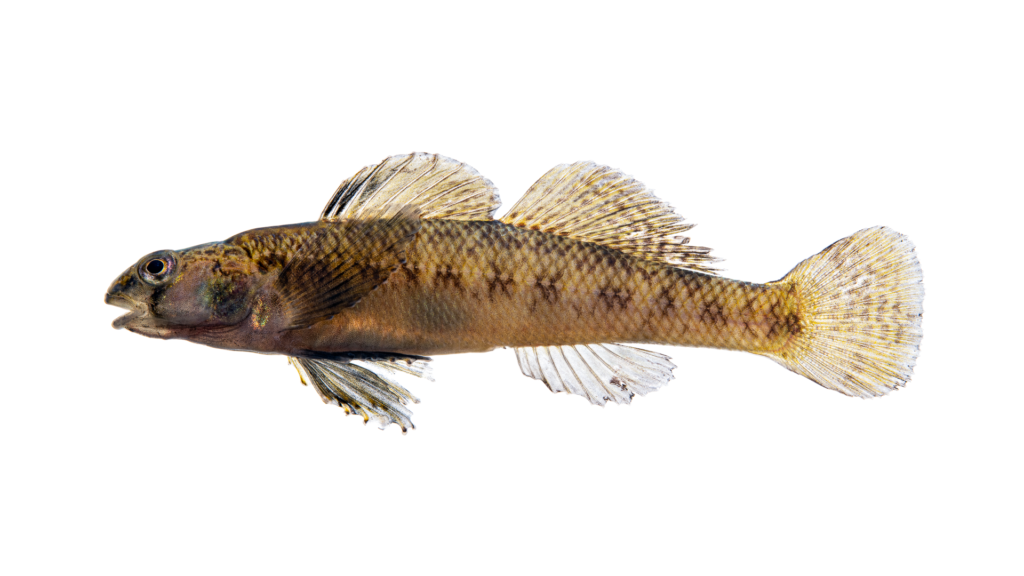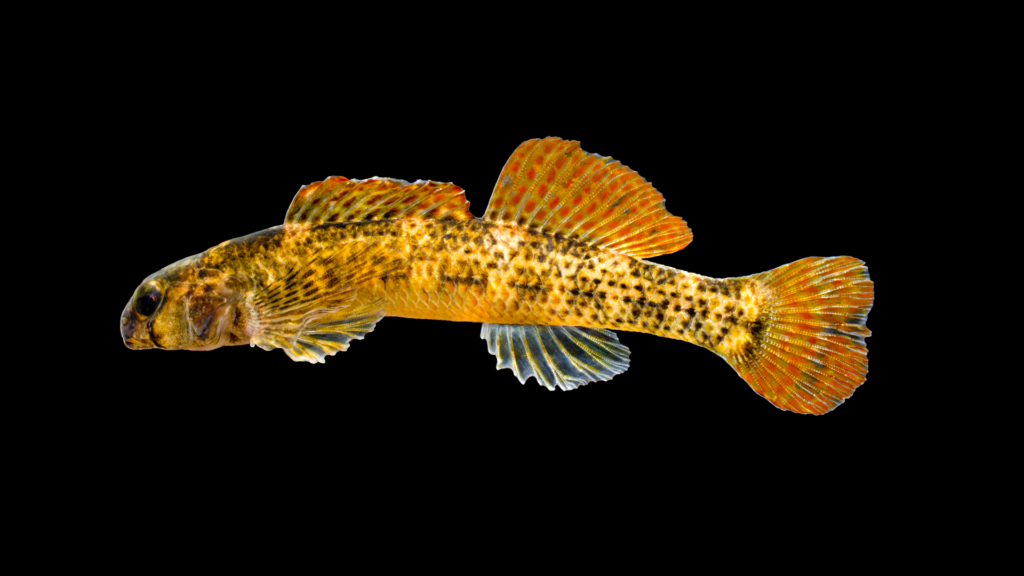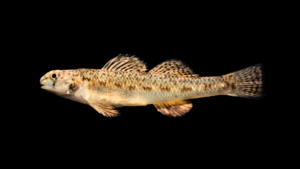
Etheostoma sp. cf. olmstedi
| Family | Scientific Name | Author | Year | Common Name |
| Percidae | Etheostoma sp. cf. olmstedi | “Tessellated” Darter |
Note: The taxonomic status of “Tessellated” Darter, Etheostoma sp. cf. olmstedi, remains unsettled (MacGuigan, D. J., O. D. Orr, and T. J. Near. 2023. Phylogeography, hybridization, and species discovery in the Etheostoma nigrum complex (Percidae: Etheostoma: Boleosoma). Molecular Phylogenetics and Evolution 178: no. 107645). In North Carolina this undescribed taxon is found in White Oak, Neuse, Roanoke, Chowan, and Albemarle Sound basins.
Unique Characteristics: Belly and interpelvic area lacking modified scales. Lateral line normal, not arched upward. Gill membranes narrowly joined, 55-75°. One anal spine; anal rays 7 or 8 (7-10). Lateral line scales 39-54. Caudal fin emarginate or truncate. Infraorbital canal incomplete.
Similar Species:
Southern Tessellated Darter Etheostoma maculaticeps
Riverweed Darter Etheostoma podostemone

Southern Tessellated Darter Etheostoma maculaticeps. Belly and interpelvic area lacking modified scales. Lateral line normal, not arched upward. Two anal spines; anal rays 7 or 8 (7-10). Lateral line scales 39-54. Gill membranes narrowly joined, 55-75°. Caudal fin truncate. Infraorbital canal normally complete, often incomplete in specimens from the Cape Fear basin. Restricted to the Cape Fear, Shallotte, Lumber, Yadkin, Catawba, Broad, and New River basins.

Riverweed Darter Etheostoma podostemone. Belly and interpelvic area lacking modified scales. Lateral line normal, not arched upward. Two anal spines; 1st anal spine flexible, as thin as 2nd anal spine. Gill membranes broadly joined, 100-110°. Caudal fin rounded. Breeding males with bright orange spots in both dorsal fins and in caudal fin. Restricted to the upper and middle Dan River system in the Roanoke basin.
Gallery


